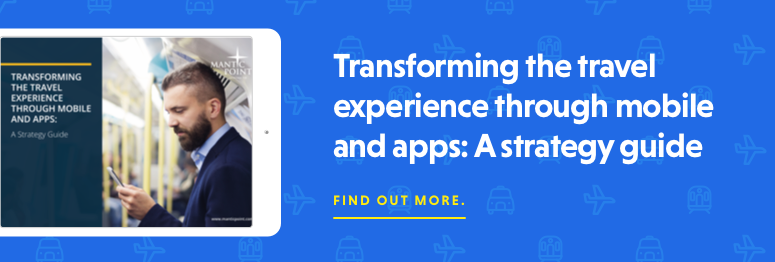Data, travel technology and the changing role of the TMC
Posted by Mike Atherton on 06 June, 2016
Wearable technology, the sharing economy and the convenience of direct mobile booking are at the forefront of discussions about the travel industry, but what do these changes mean for TMCs? Overall the availability of data and its utilisation will have a tremendous impact on the role of TMCs.
What do new technologies mean for TMCs?
Wearable technology
Whilst business travel has yet to fully realise its potential, wearable technology such as smart watches and other devices like activity, health, luggage and personal trackers, offer travellers the ability to evaluate, quantify and improve their performance when travelling. In turn it provides TMCs with achievable opportunities to offer monitoring services to support business travellers, providing timely travel reminders, plus tips on maintaining optimal health throughout a trip. By factoring in third-party data sources, TMCs can expand on this service by providing travellers with, for instance, information on local healthy restaurants, gyms and supports facilities, or even walking destinations. With wearable technology devices, this information can be delivered straight to the traveller to enhance their experience, when they’re most likely to need and use it.
The Sharing Economy
Ride sharing is becoming commonplace almost everywhere and accommodation sharing is increasingly acceptable for some business travellers, if not travel managers. In data terms, this is shifting the balance of control towards the traveller rather than the TMC, especially for accommodation bookings. This could leave TMCs with significant management data gaps in their service offerings.
However, for many companies managed travel is the preferred approach to business travel, as control over spend and employee support can be retained, and duty of care obligations can be met. With prominent sharing economy services such as Uber and Airbnb now targeting the corporate market, only time will tell if relevant data gaps become widespread or if this data will become easily accessible to TMCs.
Mobile bookings
Having a mobile presence is becoming a fundamental part of the managed travel service offering, even if this is achieved by partnering with a GDS. Being able to offer mobile itinerary apps, booking, intelligent two-way messaging and travel risk management support will soon be essential for TMCs to retain and win client accounts. TMCs need to handle and utilise more traveller-centric data so services can be greater personalised and so agencies can learn to develop a more engaging and relevant service.
What does this mean for the evolution of the TMC?
Data will be increasingly fundamental to the service TMCs provide. Successful agencies will evolve away from the traditional gatekeeper position to become key network nodes, interconnected from a data perspective with a wider variety of sources, suppliers and partners. Whether it be data directly from traveller activity through wearable technology, from owned sources such as travel apps or third-party sources such as Uber or Google, data will enable TMCs to offer a more supportive, useful and compelling service to travellers and businesses.
At Mantic Point our Travel APIs and supplier integrations allow TMCs to retain and build the visibility of traveller transactions beyond their traditional GDS and OBT relationships. Receive a demo of our Single Itinerary Service to see how our technology makes this possible.



